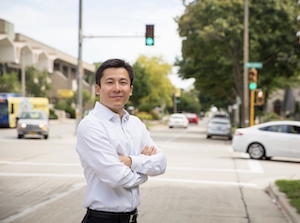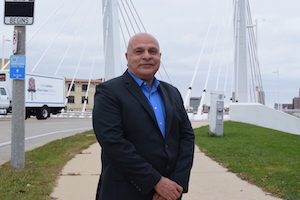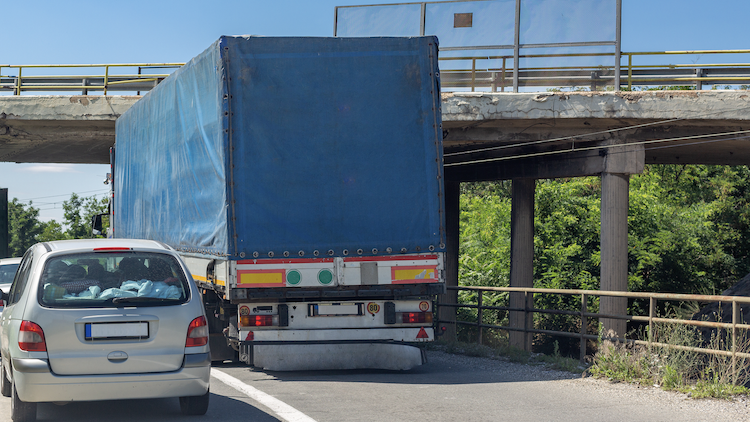A truck carrying an over-height load becomes wedged under a concrete bridge, causing debris to fall and leading to a bridge closure. An over-height tractor trailer slams into a train bridge, damaging infrastructure and halting traffic flow for hours.
According to the Federal Highway Administration (FHWA), over-height vehicles are among the main causes of structural damage to bridges — a nationwide problem that has eluded enduring, effective countermeasures.
The agency is ready to conduct research and field evaluation of an energy-dissipating prototype that could protect bridge girders in the event of a strike from these vehicles.
They have chosen two teams from across the nation for this work, one that includes two UWM experts in bridge impacts and repairing damaged bridge structures–Xiao Qin and Habib Tabatabai. The two have partnered with Applied Research Associates and now will be allowed to bid on various tasks within the $1.8 million FHWA-led project.
About the UWM bridge researchers

Qin leads the UWM team. He is a UWM traffic safety expert who in 2021 was awarded $500,000 from the National Cooperative Highway Research Program to help all state departments of transportation, public safety agencies, and the motor carrier industry prevent and mitigate the risk of bridge and tunnel strikes. Qin is a Lawrence E. Sivak ’71 professor of civil & environmental engineering and director of UWM’s Institute for Physical Infrastructure and Transportation (IPIT).

Tabatabai is an expert on bridge engineering and assessment issues—most notably the long-term durability and reliability of bridge structures. At the invitation of the National Academies of Sciences, Engineering and Medicine, he is currently reviewing the failure and collapse of mammoth radio telescope at the Arecibo Observatory in Puerto Rico. He is a professor of civil & environmental engineering and director of the UWM’s Structural Engineering Lab,
For this project, the FHWA has partnered with departments of transportation in seven states. It will award funds to the two teams to complete tasks including researching, testing, analyzing, delivering technology and deploying technology.
The project is expected to start in May.
